Q&A: George Thorogood previews summer Delaware return; Camden show with John Fogerty
How long has it been since George Thorogood last performed at Delaware's beaches? Probably longer than you think.
He was just 17 years old rocking a Rehoboth Beach party in 1967 to an audience that included ― get this ― Lynda Bird Johnson, daughter of then-U.S. President Lyndon B. Johnson.
So when Wilmington-born Thorogood and his trusty Destroyers make their debut June 22 at Freeman Arts Pavilion near Selbyville just 10 miles west of Bethany Beach, it will be a bit of a First State full circle moment for the rocker.
But when he's reminded at the end of his recent interview with Delaware Online/The News Journal about the venue's proximity to the beach, "Fun, Fun, Fun" was not quite what the 74-year-old Brandywine High School alumni is suddenly thinking about.
"Please, please, please do this for me Ryan since you and I go back so far. Please tell everybody there to leave the beach balls home," he says, revealing a major pet peeve. "We are not The Beach Boys. We're not Jan and Dean. I hate it when they start hitting beach balls while I'm performing. I feel like stopping the show.
"If you want to play with a beach ball, go to Rehoboth Beach. This is a rock performance."
You have been warned.
Thorogood and his band, anchored by original members Bill Blough (bass) and Jeff Simon (drums), are in the midst of their 50th anniversary tour, postponed last year due to a "very serious medical condition" for Thorogood. It required emergency surgery from which he has since recovered.
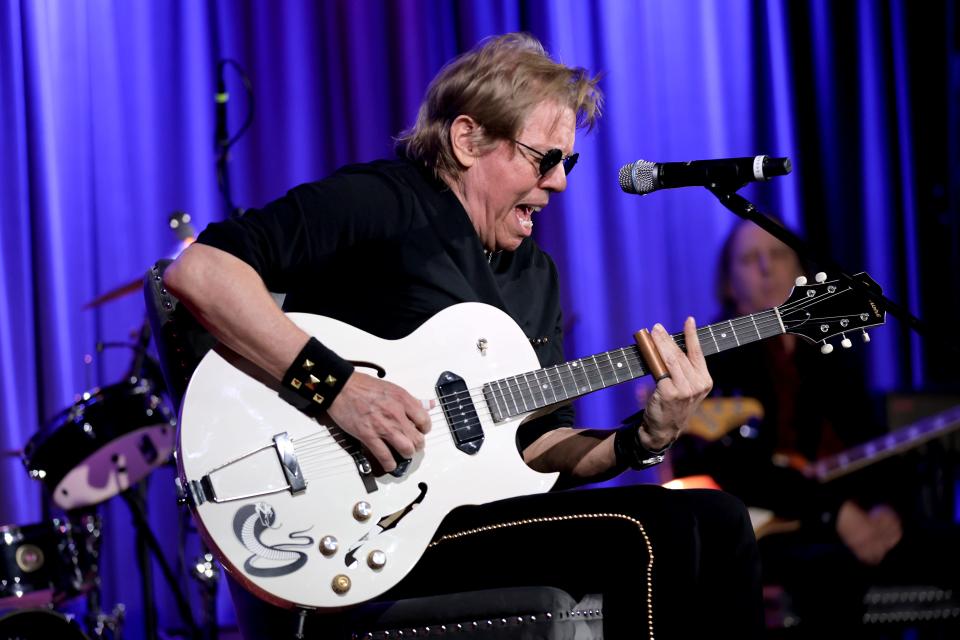
Not only does the tour bring the blues-based rock act to the Selbyville area, but the band also will open for John Fogerty of Creedence Clearwater Revival fame on June 7 at the Freedom Mortgage Pavilion in Camden, New Jersey.
It's a celebration marking more than a half-century of barroom bruisers ― "Bad to the Bone," "One Bourbon, One Scotch, One Beer," "Who Do You Love?," "I Drink Alone." And it all started on Dec. 1, 1973, when Thorogood and the then-Delaware Destroyers drove a Volkswagen bus to Lane Hall at the University of Delaware in Newark for their first show together.
They have since performed more than 8,000 live shows, sold more than 15 million albums and even once performed in front of 100,000 people.
We caught up with Thorogood to talk about his health scare, coming up as a young band in Delaware, his 50th anniversary tour and the day he performed at Live Aid in Philadelphia in front of that massive crowd 39 years ago.
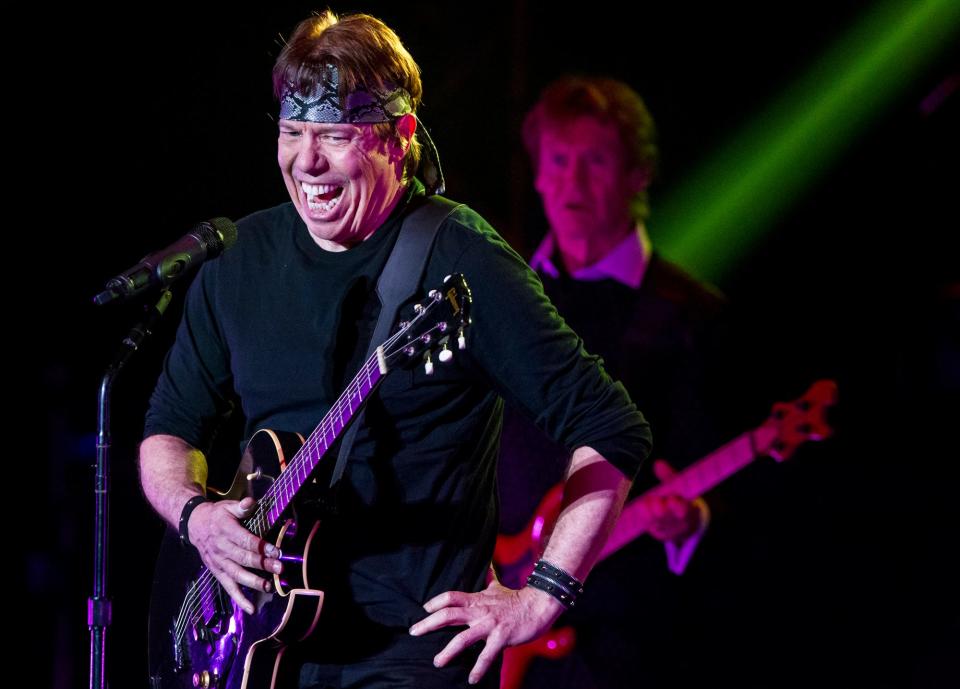
Question: Is there anything particularly special planned for these anniversary shows?
Answer: All of our shows are special. We don't need an anniversary to express that.
So you're not gonna be digging deeper into the songbook or anything?
That's impossible. The songbook goes back so far I couldn't even remember how to play some of those songs.
Your tour was postponed last year for your surgery. I don't know if you've spoken about this, but can you shed any light on on what you went through?
Pain. It's hard to shed light on pain.
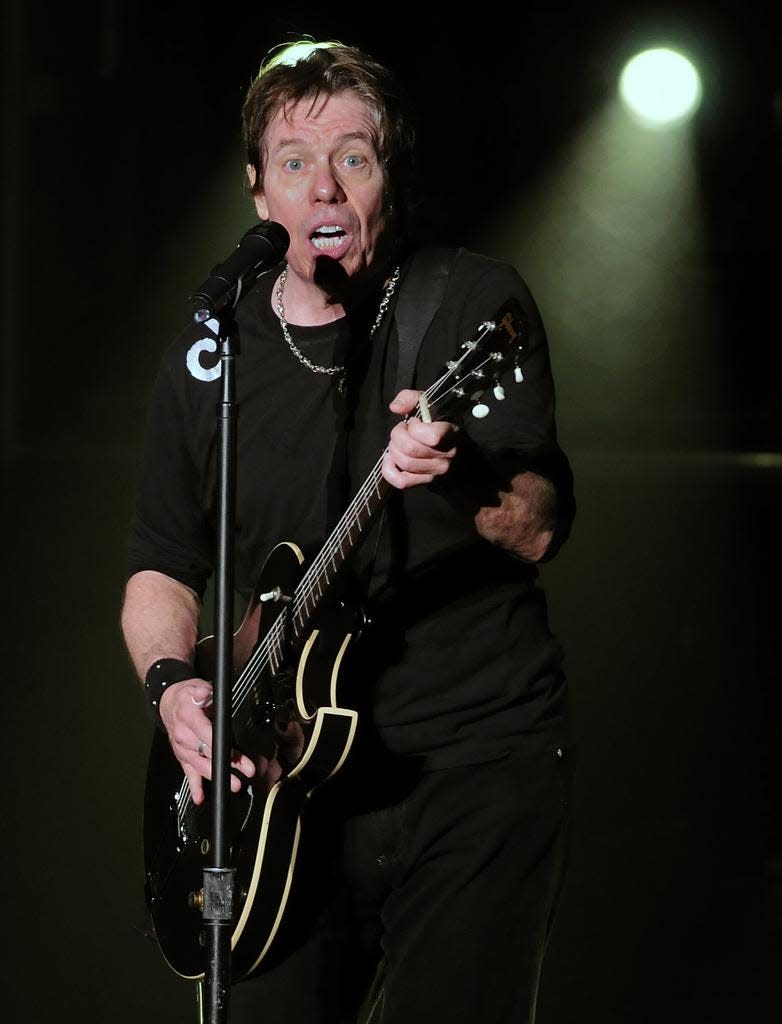
Can you tell us anything about what it was?
Sure I could, but why bother? That's in the past. Let's move on.
You're feeling good now though. You have a lot of dates on the books, I see.
They still want us, you know, so we're grateful for that, Ryan.
What's it like when you play shows in Delaware? Do you look out at the crowd and see faces you remember or maybe some faces you don't want to remember from your past?
At my age, I don't see any faces I remember. They're all too young.
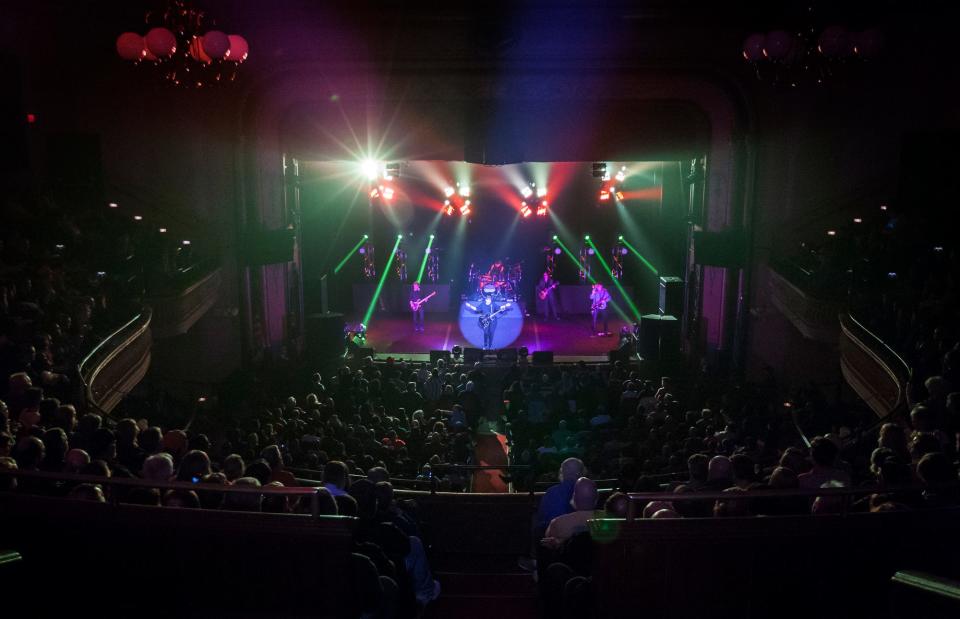
I was curious about your Delaware show memories, particularly from the early days. Do you have any standout shows? Maybe a bar show or bigger show that stands out as a particularly good time or when a light bulb went off?
Those were our pre-record days. I won't say we were struggling, but we were working hard to get to a level to get a record out. So we made the most out of the work we were doing then. We were trying to achieve the level that we've achieved now. And in the Delaware area, we were grateful for the shows we had.
You have to remember that it's a very small state. And we were a blues trio. They didn't have that much live entertainment and the live entertainment they did have was cover bands or international big acts coming through. So we spent a lot of time in the Delaware Valley, but playing Delaware was very limited because the place is small. We also played a lot in Philadelphia and Baltimore and New England. We spread ourselves around. In those days when we were just getting going ― you don't have an agent, you don't have a record deal ― work was scarce. The Buggy Tavern [in Brandywine Hundred] was a good one.
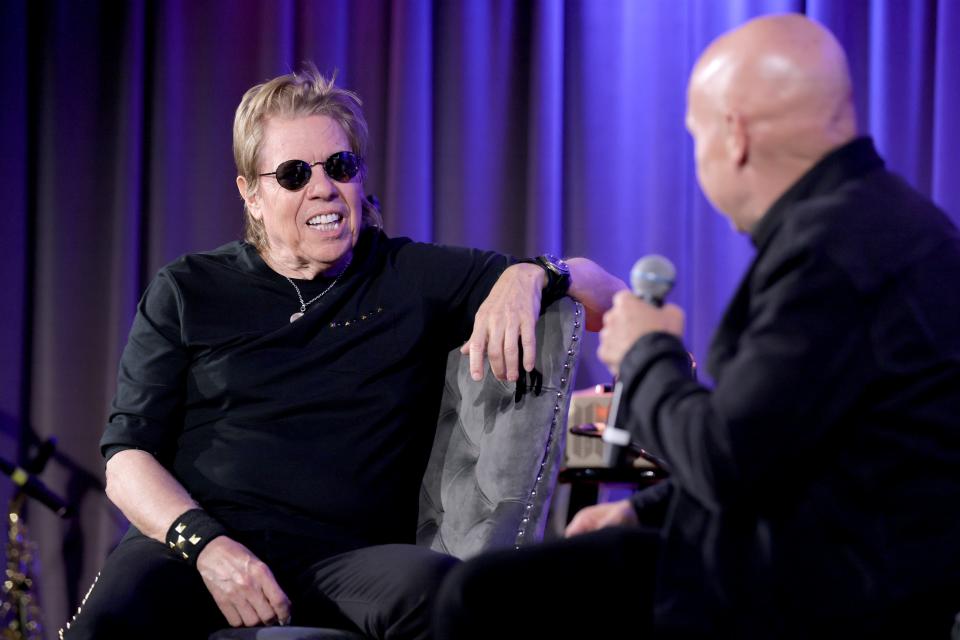
Who were your contemporaries in terms of Delaware bands that were playing out at the Buggy or The Deer Park Tavern in Newark at that time? Do you remember any of them in particular?
All of them. There was Lisa Jack and the Boys in the Back. The fabulous Watson Brothers. Blind Johnny [Neel] who was a genius and should have been a superstar. "Socco" [Lawrence Wright] should have been a superstar. One of my contemporaries and good friends was Gary Watson, rest in peace. There was many people in the Delaware area that I thought were much more talented than me. To this day, I scratch my head and wonder why they didn't break internationally. Of course, they didn't have a record, but still.
I always thought people like Socco, Lionel White, Gary Watson and Larry Tucker were extremely talented people. And they really had a great thing going. And I kind of used Gary as a marker. We knew each other since high school and he was always in a successful band and it was when he was with the Watson Brothers with Dale Melton and Dennis Melton, rest in peace, that he really could have gone all the way. I thought he could have been another Kenny Loggins to tell you the truth. He had the look. He wrote great songs. And he definitely had chick appeal and that don't hurt.
Summer concert season: 12 hot Delaware concerts to see this summer, from rock and rap legends to country & more
So I remember doing a gig after our first record came out and it wasn't going real good for me psychologically and mentally. Breaking into show business wasn't quite what I thought it would be when I was a kid. And I went to see the Watson Brothers and they were so good. Gary was doing such a great job that I sat there and said, "Am I going to quit this business?" And I thought to myself ― and this is where my competitive juices are flowing ― "There is no way I am going to let Gary Watson become more famous than me." So he was the barometer for me to keep pushing and keep pushing. There was so much talent there. How three s--t-kickers like me and Billy and Jeff got to where we are ― two chords and a foghorn voice ― but we somehow pulled it off.
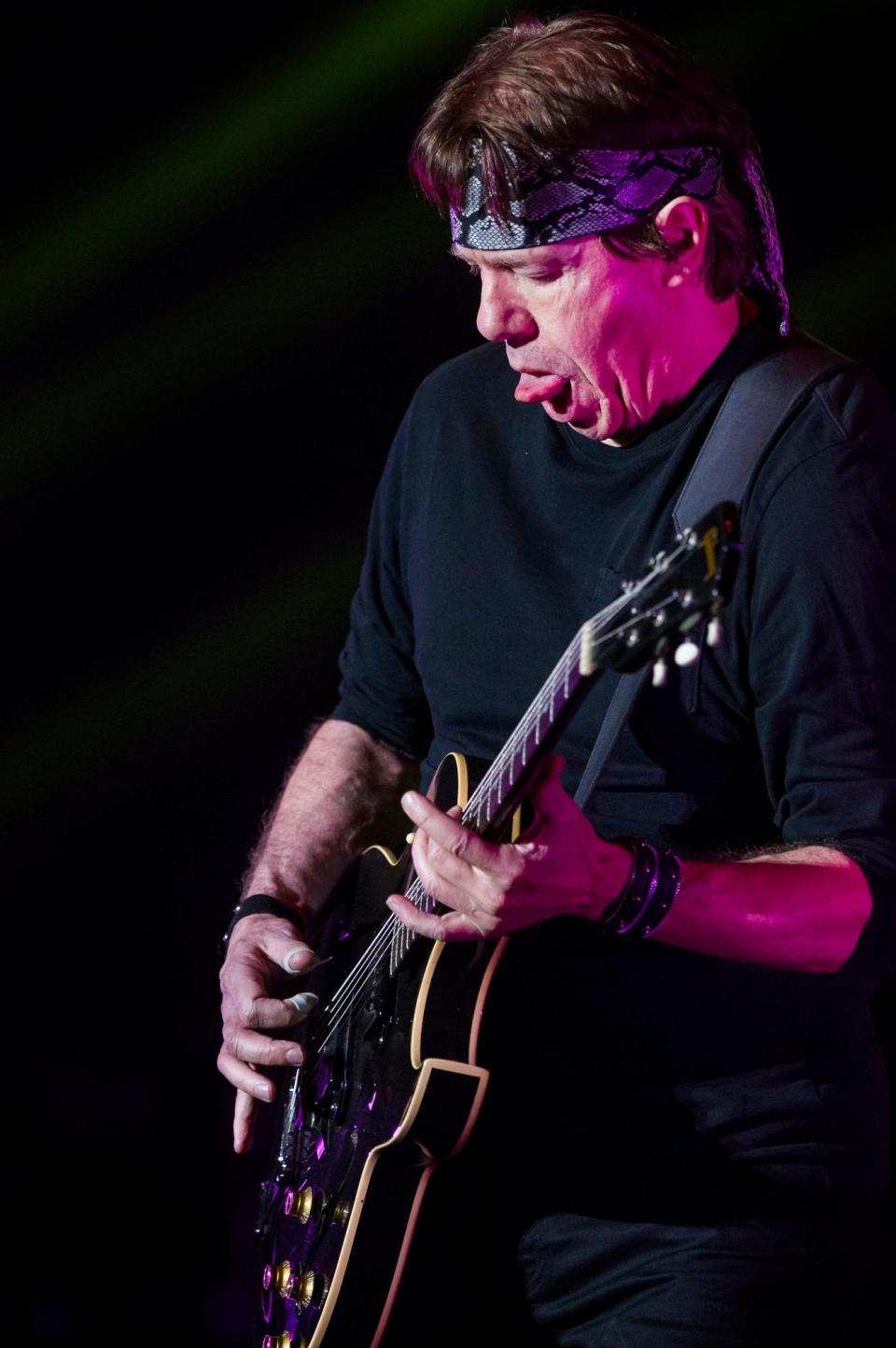
I saw your gigs with John Fogarty were recently announced. When you guys were starting out, where did CCR land in terms of what you were into?
We listened to everything back then because there wasn't that much to listen to. It wasn't the vast amount of artists that's out there today. There's 10,000, 20,000, 50,000 acts played on Sirius radio and everything all over the world. So in those days, it was radio Top 40. And Creedence Clearwater dominated those charts. Right after The Beatles broke up, Creedence Clearwater was all over the charts ― the kings of the No. 1 singles. So yeah, of course, I listened to that. I said, "Wow, that's what I want to do with my life." But trust me, I'm never going to be able to sing and write like John, but they were a big inspiration for me to do what it is I do now.
John Fogerty tour: George Thorogood and Delaware Destroyers touring this summer with John Fogerty
I watched your Live Aid set from 1985 for the first time just a couple of days ago. I didn't realize you brought Bo Diddley and Albert Collins up there with you. So it was a 15-minute set in front of 90,000 people? Was it like being shot out of a cannon?
It was 100,000. Get it right. Come on, man. I remember that. The great television actor George Segal was the man who was going to introduce us to the audience. And while I'm standing backstage getting ready to go on, I notice this man coming across the stage towards me. He looked like he was dressed to go bowling, you know? He comes up to me, he goes [doing Jack Nicholson impression], "Georgie, Jack." And I said, "Jack! Oh man. Jack Nicholson. Too much. You know who I am?" And he says, "Sure, Georgie. I always follow the rough boys."
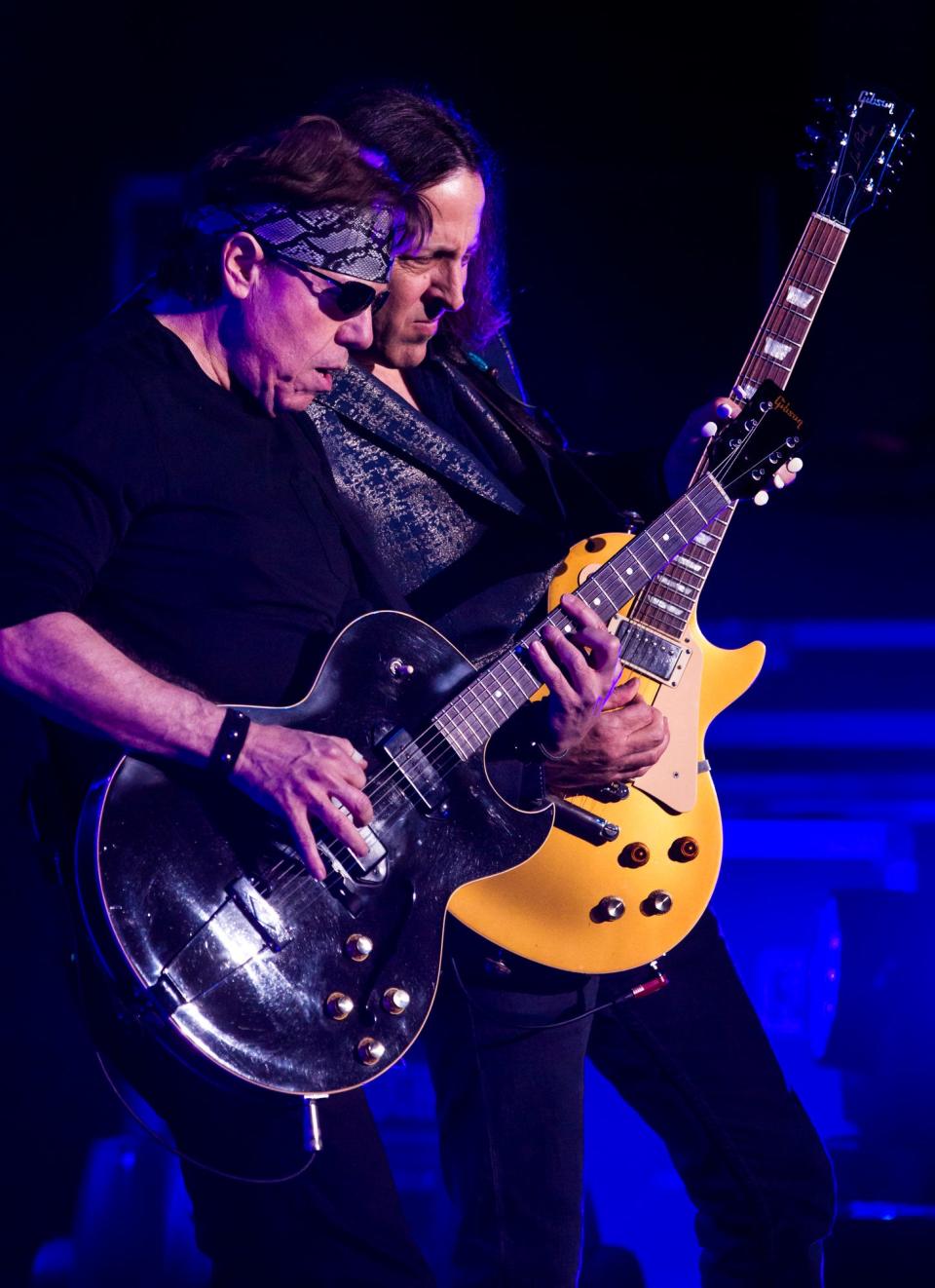
When you were starting out there obviously weren't any rock acts where the band members were in their 70s or 80s. Was that ever a thought of as a possibility when you're starting to get some fame? Like, "Hey, we can do this for a living forever."
No. Forever is a big word, right? Nobody uses the word forever. But when we did break with our first record, I knew we had the stuff to make it. And it didn't have anything to do with just plain confidence or blatant ego. My ears work. I could hear the sound coming out of my guitar, you know? I knew was a good sound that could attract people's attention. And it did. But it took so damn long and that's what really irked me. So when we finally broke through, I was very bitter for a few years. We had all these big booking agents and big record labels coming after us and I was thinking, "Well, where have you been in the last 10 years?" It took me a while to get over that.
Do you do anything differently these days to prepare for a tour? Is there a workout? Because just doing all that traveling is a lot, never mind putting on the show each night.
I have always appreciated the rewards of a good night's sleep.
Have a story idea? Contact Ryan Cormier of Delaware Online/The News Journal at [email protected] or (302) 324-2863. Follow him on Facebook (@ryancormier) and X (@ryancormier).
This article originally appeared on Delaware News Journal: George Thorogood & the Destroyers celebrate 50 years with local shows
